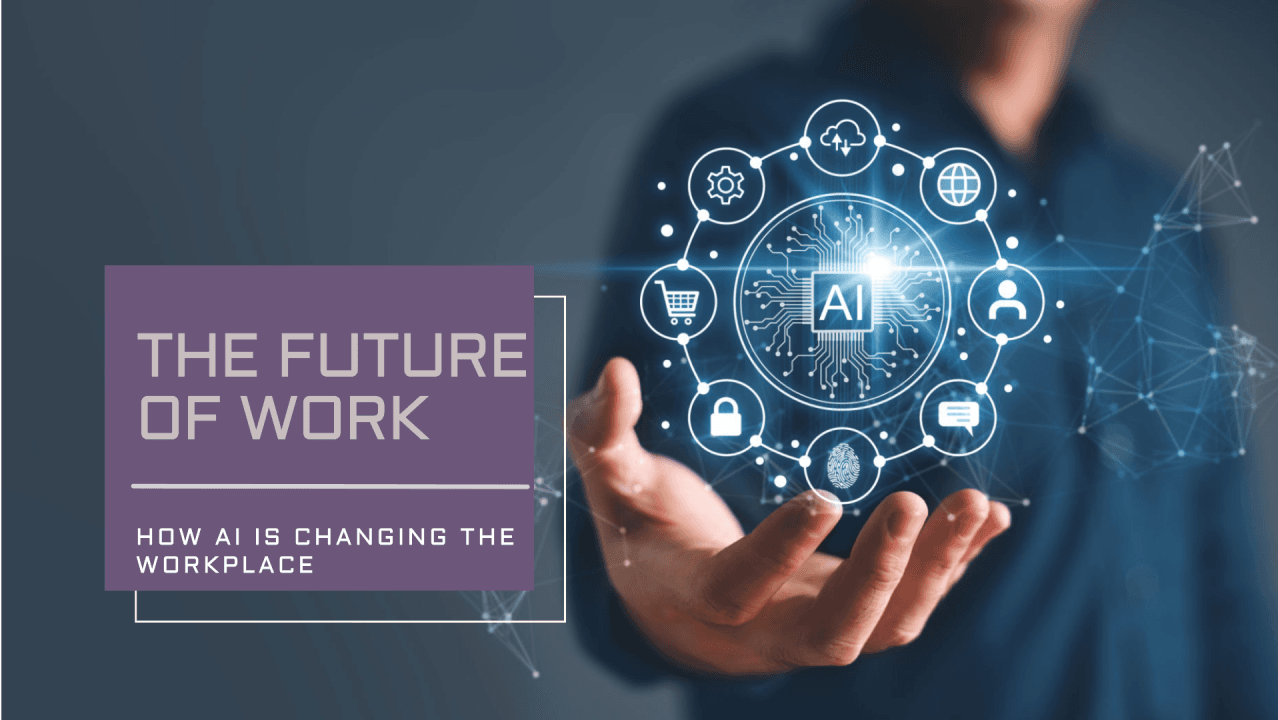

Artificial intelligence is rapidly transforming today’s workplace, revolutionizing how we handle tasks, make decisions, and collaborate. Let’s explore this topic in more detail with Papa’s Freezeria below to understand the profound impact AI is having across industries. From automating routine processes to enhancing creativity and problem-solving, AI technologies are reshaping job roles and creating new opportunities. As organizations adapt to this AI-driven landscape, it’s crucial to examine both the benefits and challenges of integrating these powerful tools into our work environments.
Artificial intelligence has become an integral part of many businesses, transforming operations and enhancing productivity across various sectors. As AI technologies continue to advance, their adoption in the workplace is accelerating at an unprecedented rate. Companies are leveraging AI to streamline processes, analyze vast amounts of data, and make more informed decisions.
One of the key drivers behind AI’s rapid integration into the workplace is its ability to handle repetitive tasks with greater efficiency and accuracy than humans. This automation of routine work allows employees to focus on higher-value activities that require creativity, critical thinking, and emotional intelligence. For instance, in customer service, AI-powered chatbots can handle basic inquiries, freeing up human agents to deal with more complex issues that require empathy and nuanced understanding.
Moreover, AI is revolutionizing data analysis and decision-making processes. Machine learning algorithms can process enormous datasets, identifying patterns and insights that might be impossible for humans to discern. This capability is particularly valuable in fields such as finance, healthcare, and marketing, where data-driven decisions can lead to significant improvements in performance and outcomes.
Read more: How to Set Up a Smart Home on a Budget
As AI becomes more prevalent in the workplace, it is inevitably changing the nature of many job roles. While some fear that AI will lead to widespread job losses, the reality is more nuanced. AI is indeed automating certain tasks, but it is also creating new roles and enhancing existing ones. This shift is prompting a reevaluation of the skills needed in the modern workplace.
Employees are increasingly required to work alongside AI systems, which demands a new set of skills. Technical literacy and the ability to interact with AI tools are becoming essential across various industries. For example, in marketing, professionals now need to understand how to use AI-powered analytics tools to interpret customer data and create more targeted campaigns.
Furthermore, as AI takes over routine tasks, there is a growing emphasis on uniquely human skills such as creativity, emotional intelligence, and complex problem-solving. These are areas where AI currently falls short, making them increasingly valuable in the job market. Leadership and management roles are also evolving, with a greater focus on guiding teams through AI integration and fostering innovation in AI-enhanced environments.
To adapt to these changes, both employers and employees are recognizing the importance of continuous learning and skill development. Many organizations are investing in upskilling and reskilling programs to ensure their workforce remains competitive in the AI era. These programs often focus on developing a mix of technical skills related to AI and data analysis, as well as soft skills that complement AI capabilities.
Educational institutions are also adapting their curricula to prepare students for an AI-driven workplace. This includes introducing courses on AI and machine learning, as well as emphasizing interdisciplinary approaches that combine technical knowledge with critical thinking and creativity.
One of the most significant ways AI is changing the modern workplace is through dramatic improvements in productivity and efficiency. AI-powered tools and systems can process information and perform tasks at speeds far beyond human capabilities, leading to substantial time and cost savings for businesses.
In manufacturing, AI-driven robotics and predictive maintenance systems are optimizing production lines, reducing downtime, and improving quality control. In the legal sector, AI is being used for document review and contract analysis, tasks that once required hours of human labor. These efficiencies allow companies to allocate resources more effectively and focus on strategic initiatives that drive growth.
AI is also enhancing decision-making processes by providing data-driven insights. For example, in the retail industry, AI algorithms can analyze consumer behavior patterns to predict trends and optimize inventory management. This not only improves operational efficiency but also enhances the customer experience by ensuring product availability and personalized offerings.
AI is transforming how teams collaborate and communicate in the workplace. AI-powered project management tools can intelligently allocate tasks, predict potential bottlenecks, and suggest optimal workflows. Virtual assistants and scheduling tools use AI to streamline meeting arrangements and manage calendars more efficiently.
In the era of remote and hybrid work, AI is playing a crucial role in maintaining team cohesion and productivity. AI-enhanced video conferencing platforms can improve audio and video quality, provide real-time translations, and even offer insights on participant engagement. These tools are making distributed teams more effective and bridging the gap between in-office and remote workers.
Read more: Top Free Tools Every Remote Worker Should Use
While the benefits of AI in the workplace are significant, its integration also raises important ethical considerations and challenges. One of the primary concerns is the potential for AI to perpetuate or amplify existing biases. AI systems learn from historical data, which may contain societal biases related to gender, race, or other factors. If not carefully designed and monitored, AI tools used in hiring, performance evaluation, or customer service could reinforce these biases.
Privacy is another major concern as AI systems often rely on vast amounts of data, including personal information about employees and customers. Organizations must navigate the complex landscape of data protection regulations and ensure that their use of AI respects individual privacy rights. This includes being transparent about how data is collected, used, and protected.
The rapid pace of AI advancement also raises questions about job displacement and the need for a just transition. While AI creates new opportunities, it may also lead to the obsolescence of certain roles. Businesses and policymakers must work together to manage this transition, ensuring that workers have opportunities to adapt and that the benefits of AI are distributed equitably across society.
To address these challenges, many organizations are developing frameworks for responsible AI use in the workplace. This includes establishing ethical guidelines for AI development and deployment, conducting regular audits of AI systems for bias and fairness, and involving diverse stakeholders in the design and implementation of AI solutions.
There is also a growing emphasis on AI transparency and explainability. As AI systems become more complex and influential in decision-making processes, it’s crucial that their operations can be understood and scrutinized. This is particularly important in sectors like healthcare and finance, where AI-driven decisions can have significant impacts on individuals’ lives.
Education and training play a vital role in responsible AI adoption. Employees at all levels need to understand the capabilities and limitations of AI systems they work with, as well as the ethical implications of their use. This knowledge empowers workers to use AI tools effectively while also serving as a check against potential misuse or overreliance on AI.
The integration of AI into the workplace is an ongoing process that requires careful management and continuous adaptation. As AI technologies evolve, so too must our approaches to harnessing their potential while mitigating risks. By focusing on responsible development and deployment, organizations can create AI-enhanced workplaces that are not only more productive but also more equitable and human-centered.
In conclusion, AI is undeniably reshaping the modern workplace in profound ways. From boosting productivity and efficiency to changing the nature of jobs and skills required, its impact is far-reaching. As we navigate this AI-driven transformation, it’s crucial to balance the pursuit of technological advancement with ethical considerations and the need for human-centric workplaces. By doing so, we can harness the power of AI to create work environments that are more innovative, inclusive, and aligned with human values. The future of work is not just about AI replacing human tasks, but about creating a symbiotic relationship where AI augments human capabilities, leading to unprecedented levels of creativity, problem-solving, and progress.